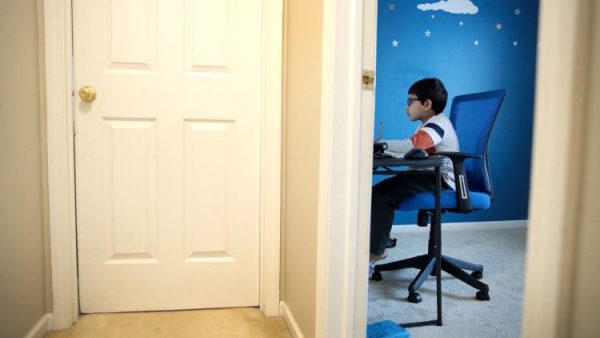Safeguarding children online
 Fr Hans Zollner explores online risks for children and offers tips for their online safety.
Fr Hans Zollner explores online risks for children and offers tips for their online safety.
“Safeguarding Webinars” is a series of online formation organized by the International Union of Superiors General (UISG) in collaboration with the Pontifical Commission for the Protection of Minors (PCPM), the Centre for Child Protection (CCP) of the Gregorian University and the Telefono Azzurro hotline in Italy.
The second of the four webinas took place on Thursday with Fr Hans Zollner presenting. His presentation focused on “Safeguarding online in times of lockdown”. Fr Zollner is the President of the CCP and a member of the PCPM. As PCPM Project Manager Emer McCarthy said in her introduction, Fr Zollner has become the Church’s “public face” in its campaign to safeguard children from abuse.
Internet pluses and minuses
The internet has enhanced our lives greatly, Fr Zollner acknowleged. Yet, it also raises questions regarding the “physical, sexual, psychological, educational, relational and spiritual aspects of our lives”, he said. Questions such as how the internet affects each user personally, how it affects our relationships and possible risks often remain at the unconscious level.
Father Zollner explained that those who seek to abuse children and vulnerable persons use the internet because it is easier to “produce, access and share sexual abuse materials; find like-minded offenders; and it reduces their risk of detection.” Activities harmful to children take the form of online grooming, sexting (which often takes place among peers), live streamed sexual abuse, cyber bullying and intimidation. Abuse involving girls makes up 90% of the sexual exploitation of minors. Offenders even target children under the age of 2, Fr Zollner said. Children between the ages of 11-13 are targeted the most often, followed by those between the ages of 7-10.
Lockdown effect
Offenders have taken advantage of the lockdown resulting in an increase in accessing material in which children are sexually exploited physically and digitally. Some statistics Fr Zollner offered are: in the UK in the month of April there were 9 million attempts to access child sexual abuse websites; in Denmark, such access has trebled; in Spain access of child sex videos has risen 20%; in Australia, in the span of 3 weeks after 21 March, there was an 86% increase in accessing abuse imagery; the National Center for Missing & Exploited Children in the United States published a 106% increase in reports of child sexual abuse in March.
This factor is coupled with the fact that parents are balancing work, homeschooling and keeping the family functioning under lockdown conditions. One consequence is that children are being less supervised regarding their online habits. In addition, the focus of public agencies and government institutions has shifted to the Covid-19 crisis. This means that child protection has been relegated to a lower priority, Fr Zollner explained. Support systems for both adults and children have been disrupted which can leave them more emotionally vulnerable, and may increase offending activity on the part of offenders.
Steps to take
Parents have a variety of tools at their disposal to limit what their children see and do online, Fr Zollner said. Parental controls include Apps and other types of software; setting online time limits; limiting online activity to certain rooms in the home; being aware of Apps and games children are using, viewing them and playing with them so as to evaluate their appropriateness; disabling location sharing and enabling strict privacy settings.
Schools also have their part to play, Fr Zollner emphasized. School staff can inform their students about who they can contact; can set clear expectations regarding online behavior; should model healthy online behavior; can be formed about reporting procedures and signs to look out for regarding their students as they interact online with them. School staff also needs to keep the family in the loop through clear and direct communication about what is going on.
Upcoming webinars
June 30 11:30 CEST – Dr. Gabriel Dy-Liacco “Victimology and the Relational Safety Model”
July 6 11:30 CEST – Prof. Caffo “Care for children after lockdown - how has the pandemic altered our relationships?”
Sr Bernadette Mary Reis
Source: vaticannews.va
